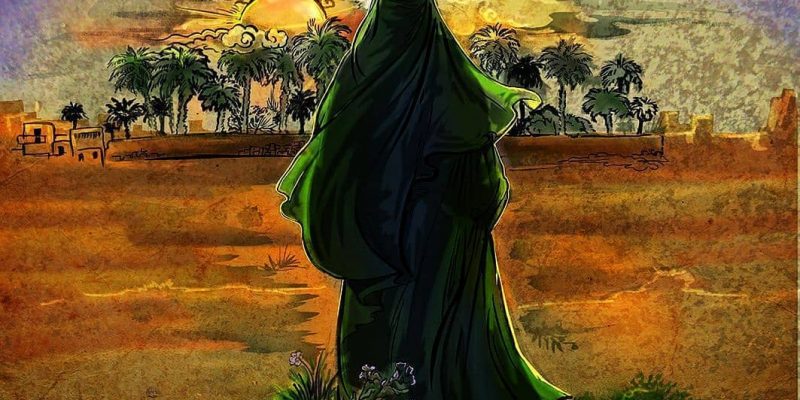Note: CSBV offered a special session specifically to include Majority-World Speakers on the subject of biblical violence. Unfortunately, I was unable to accommodate because I was asleep in my present time zone. Nevertheless, I was disappointed to have missed this session because topics focused on basic human rights and addressing violence-based justice. You can find the basics on the CSBV Homepage.
The Keynote address opened the session with Dr. J. Richard Middleton, Professor of Biblical Worldview and Exegesis, Northeastern Seminary, on “Did Abraham Pass the Test? Unbinding the Aqedah from the Straitjacket of Tradition”. Dr. Middleton gave a stimulating presentation based on findings he published in his book, Abraham’s Sacrifice. Traditional interpretations have considered the Aqedah, or Abraham’s sacrifice of Isaac in Genesis 22, as an act of righteousness proving Abraham’s faith in God. However, Middleton gives an intriguing and convincing presentation that follows careful exegesis of the narrative in Genesis 22 and its placement in the larger story arch describing Abraham’s journey to know and follow God. Middleton’s exploration of Genesis 22 provides an avenue for much needed discussion about biblical violence in Genesis.
Brandon Hurlbert, University of Durham presented a paper entitled “For Vengeance Or Something Else? The Hope Of The Timnite Woman In Judges 14”. Employing linguistic and literary exegesis, Hurlbert made connections between Genesis 38, the story of Tamar, and Judges 14. His paper raised some questions about gender perspectives and biblical violence in the narrative. His paper responds to the common misconseption that women are responsible for Samson’s downfall in Judges. However, Hurlbert’s reading proves that the Timnite woman may have been considered righteous when read in parallel with Tamar from Genesis 38.
Jennifer Lehmann, Graduate Theological Union presented “Carnivalesque in Genesis 19: Hospitality and Reproduction in an Inverted World”. Lehmann reads Lot as the “Carnival King” according to a Bakhtin perspective. Bakhtin’s categories for carnival include four aspects: 1) a world turned inside out, 2) eccentric behavior, 3) justification of opposites, dualistic construction, 4) elevation of the profane. She describes Lot as the crowned Carnival king, who, through a series of events that fit Bakhtin’s carnivalistic tragedy, results in Lot’s uncrowning at the end. Lehman presents this as a kind of tragic comedy that juxtaposes Lot’s wickedness and Abraham’s righteousness in a narrative that produces a mixed response that results in laughter and horror. Lehmann expressed an interest in exploring sexual aggression against men in the Old Testament. This is a theme that has been under-evaluated in biblical studies. The discussion that emerged from this paper centered around other Hebrew Bible narratives that include sexual aggression against men, like Genesis 9 (Ham/Noah), Genesis 38 (Tamar/Judah), and the Nephilim (Sons of God/Daughters of Men) in Genesis 6. Lehmann’s scholarship is worth following as she ponders biblical violence in this manner. Her work also led to an opportunity to promote an upcoming CSBV colloquium that will respond to a recently published book entitled When did we see you naked?.
Jon Darby, Nazarene Theological College/University of Manchester, read a paper called, “Whose Blood Is on the Rider’s Robe? Revelation 19:13 in Literary and Intertextual Perspective”. Darby concludes that the blood represents a martial view of violence against martyrs. There was a lot of great conversation around this paper that worked through the significance of the Messiah in this passage. Darby emphasized that the book of Revelation connects the Christ figure with religious Martyrs, but this particular passage referenced the blood and violence suffered by those who have followed Christ.
Conclusions
Today’s presentations focused on traditional exegetical approaches to reading biblical texts. The presenters used a mix of linguistic, literary, and theological approaches to interpret and reinterpret difficult biblical texts. Since I am very at home with Hebrew Bible exegesis, I thoroughly enjoyed this session. I look forward to delving more deeply into biblical references to violence and how we can make sense of a violent world. If you are interested in more, subscribe to the Centre for the Study of Bible and Violence on YouTube.
About this event
The Centre for the Study of Bible and Violence (CSBV) is based in Bristol, UK. This is the second year of online conferences. Read about #CSBV presentations. Also, read about other academic conferences.

Dr. Erica Mongé-Greer, holding a PhD in Divinity from the University of Aberdeen, is a distinguished researcher and educator specializing in Biblical Ethics, Mythopoeia, and Resistance Theory. Her work focuses on justice in ancient religious texts, notably reinterpreting Psalm 82’s ethics in the Hebrew Bible, with her findings currently under peer review.
In addition to her academic research, Dr. Mongé-Greer is an experienced University instructor, having taught various biblical studies courses. Her teaching philosophy integrates theoretical discussions with practical insights, promoting an inclusive and dynamic learning environment.
Her ongoing projects include a book on religious themes in the series Battlestar Galactica and further research in biblical ethics, showcasing her dedication to interdisciplinary studies that blend religion with contemporary issues.




